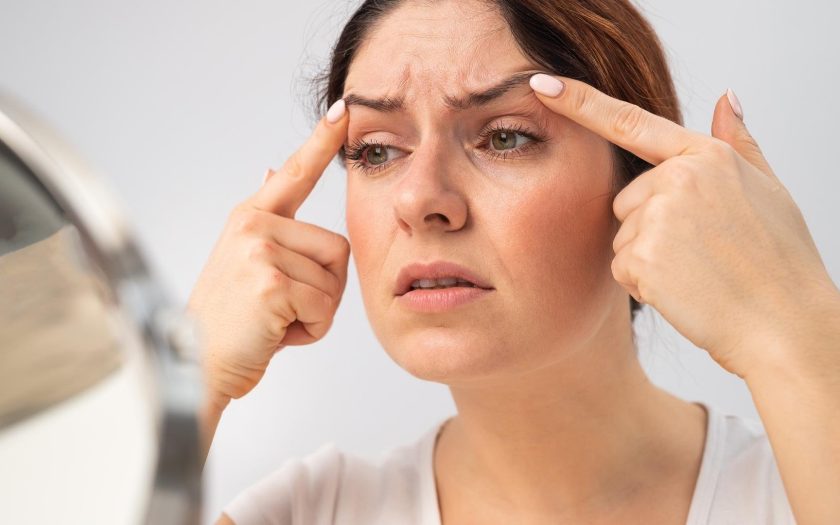-
Drink clean water regularly.
When you’re under stress, your body mobilizes all of its resources to cope with the tension. However, one of the first lines of defense that suffers — and often goes unnoticed — is your skin. It becomes drier, loses elasticity, appears dull, and may even break out. That’s why drinking clean water regularly isn’t just a healthy habit — it’s a crucial step in caring for your skin during stressful periods. Water helps maintain the skin’s natural hydration from the inside out, supports toxin removal, and improves blood circulation — which, in turn, nourishes skin cells. Therefore, experts recommend drinking a glass of cool water with a few slices of lemon and mint instead of a cup of coffee at work. After just a few days of this ritual, your skin can start to look more radiant, and dry patches may disappear — without heavy use of creams.
-
Balance your diet and fill it with skin-repairing nutrients.
Stress often changes not only your mood but also your eating habits. In such cases, a person begins to eat up emotions with sweets, drink more coffee than water. And the skin is the first to react to this dietary disruption. That’s why during stressful times, one of the best things you can do for your skin is to nourish it from within with proper nutrition. If you feed your body “empty” calories, it lacks the building blocks to create healthy skin cells. Therefore, it is worth adding more healthy foods to your diet, in particular those that support cell renewal and strengthen the body’s natural defenses. For example, instead of sweet snacks, choose yogurt with berries and seeds, and add fresh greens, fats, and fruits to your main and add fresh herbs, healthy fats, and fruits to your main dishes. Don’t forget about dishes with slow carbohydrates, which help maintain a stable energy level and harmonize internal processes, which also has a positive effect on appearance.
-
Practice meditation.
During stressful moments, your body increases cortisol levels, your heart rate accelerates, and your breathing becomes shallow. All of this not only affects your inner well-being but also shows on your appearance. That’s why meditation is not just a trendy habit, but a powerful tool for your skin’s health and beauty. While meditating, your nervous system enters a deep state of recovery: stress hormones decrease, facial muscles relax, and blood circulation improves. As a result, your skin receives more oxygen and nutrients, and regenerative processes are triggered. Even 10 minutes a day can make a noticeable difference. Meditation doesn’t have to be complicated — try a short breathing practice before bed to release the day’s tension and improve sleep quality, which is essential for glowing skin.
-
Choose high-quality skincare products.
During stressful periods, the skin becomes especially sensitive: its barrier function weakens, resistance to irritants drops, and issues like breakouts, dryness, or redness can arise. Moreover, during periods of stress, chronic skin conditions such as eczema and psoriasis may worsen. To reduce these symptoms, it is recommended to use specially formulated high quality soothing or therapeutic creams (such as Dermol Cream, Elocon Cream, Elidel Cream, Clobetasol Cream) and lotions (such as Betnovate Lotion) that help maintain the skin’s barrier function and reduce irritation.
-
Limit screen time.
During periods of stress, the body is already operating at its limit, which negatively affects the skin. Spending long hours in front of screens only worsens the situation. Blue light emitted by gadgets accelerates oxidative processes in the skin—processes that are already heightened due to stress. As a result, the skin loses its elasticity, becomes dull, and more sensitive to irritation. Additionally, when under stress, people tend to touch their faces more often, increasing the risk of inflammation. That’s why it’s especially important during difficult times to consciously reduce screen time and give your skin a chance to recover.

